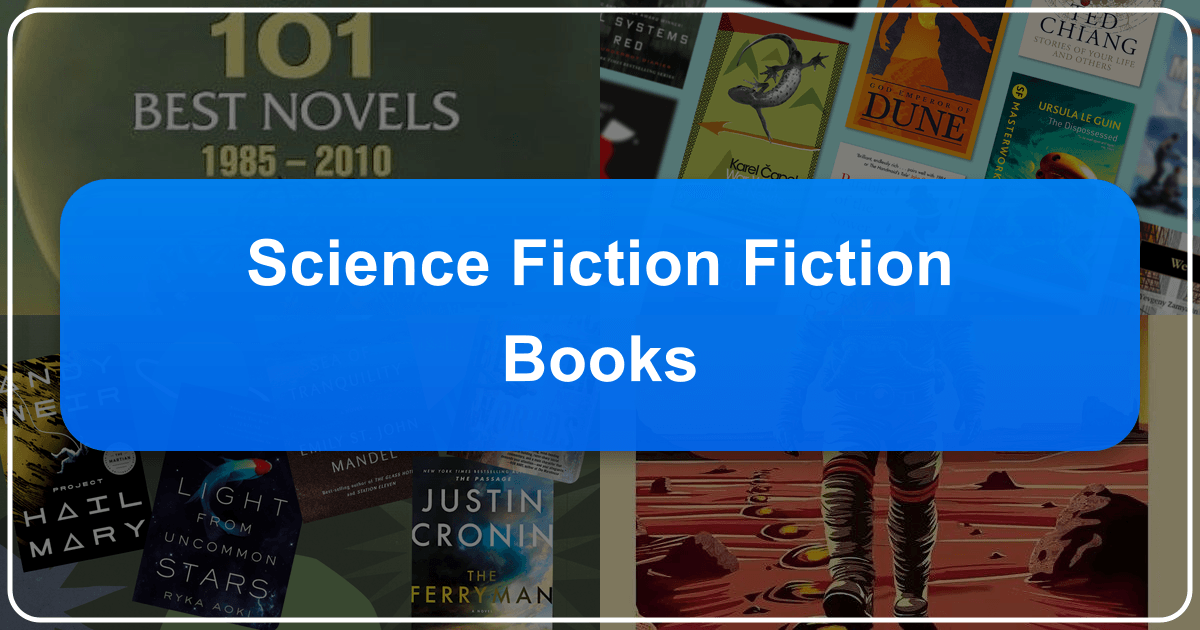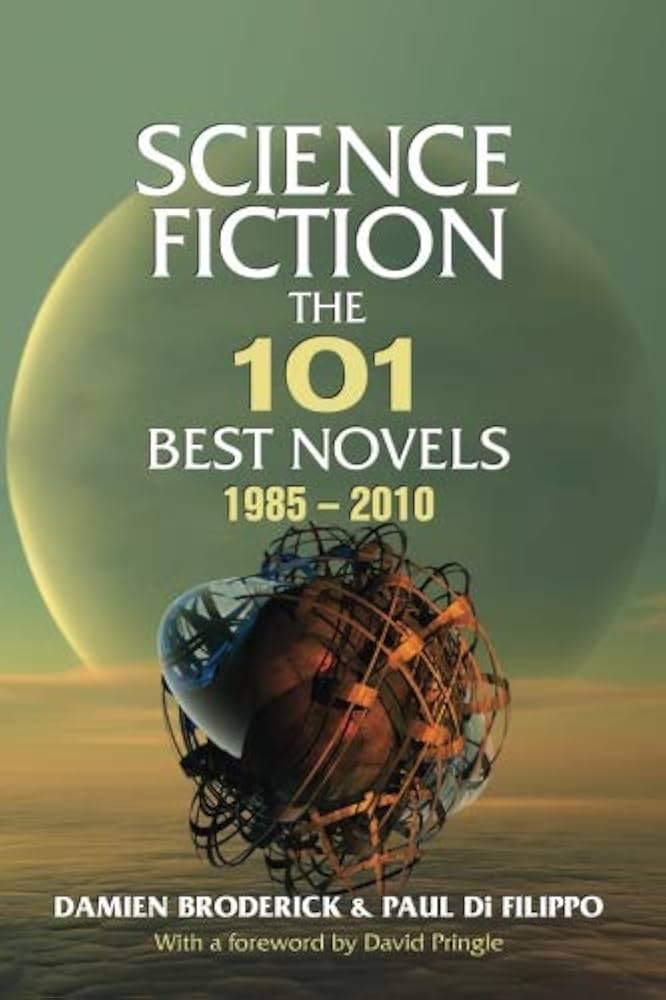Science Fiction Books: A Journey Through Worlds Imagined

Science fiction, a genre born from the boundless human imagination and our innate curiosity about the “what ifs” of the universe, has captivated readers for centuries. From the chilling dystopias that explore societal anxieties to the breathtaking space operas that transport us to galaxies far, far away, science fiction’s appeal lies in its unique ability to blend scientific concepts with compelling narratives, offering both entertainment and insightful social commentary. This exploration delves into the diverse landscape of science fiction, examining its evolution, influential works, and enduring cultural impact. The focus here will be on novels, though many great works of science fiction exist in other formats.

Exploring the Genres and Subgenres of Science Fiction
Science fiction is far from monolithic. It encompasses a vast array of subgenres, each with its own distinct characteristics and thematic concerns. Here are some of the most prominent:
Hard Science Fiction: This subgenre emphasizes scientific accuracy and plausibility. Stories often delve into intricate details of scientific principles and technologies, exploring the potential consequences of scientific breakthroughs. Authors meticulously research and incorporate real-world scientific concepts into their narratives. Examples often cited include works by authors such as Isaac Asimov and Arthur C. Clarke.
Soft Science Fiction: In contrast to hard science fiction, soft science fiction focuses more on the social and psychological implications of scientific advancements. The science itself may be less precise or even fictional, serving primarily as a backdrop for exploring human relationships, societal structures, and philosophical questions. This category includes novels that explore the potential consequences of artificial intelligence, genetic engineering, or other technological developments on society and human psychology.

Cyberpunk: This subgenre emerged in the late 20th century and typically depicts a dystopian future dominated by advanced technology and rampant corporate power. Cyberpunk often features themes of social inequality, technological control, and the blurring lines between humans and machines. William Gibson’s Neuromancer is a seminal work in this area.
Space Opera: These are large-scale, epic narratives set in space, often involving interstellar travel, galactic empires, and grand adventures. Space operas tend to be action-packed and feature a wide cast of characters and complex plots, exploring themes of war, politics, and exploration on a cosmic scale. Examples frequently cited include the Dune series by Frank Herbert and the Culture series by Iain M. Banks.
Dystopian Fiction: This subgenre presents a bleak and cautionary vision of the future, typically characterized by oppressive governments, social control, and environmental degradation. Dystopian novels often serve as warnings against societal trends and political systems, using fictional worlds to highlight potential dangers. Examples like Nineteen Eighty-Four by George Orwell and The Handmaid’s Tale by Margaret Atwood are frequently discussed.

Utopian Fiction: The counterpoint to dystopian fiction, utopian novels portray ideal societies, often characterized by social harmony, technological advancements that benefit all citizens, and a focus on social justice. While less common than dystopian narratives, utopian fiction offers an alternative vision of the future, exploring the possibilities of perfect social structures and equitable systems.
These are just some of the many subgenres that exist within the larger realm of science fiction. Many novels defy simple categorization, seamlessly blending elements of multiple subgenres to create unique and compelling narratives.
Classic and Influential Science Fiction Novels
The science fiction canon boasts an impressive array of works that have shaped the genre and continue to resonate with readers. Several key texts stand out for their innovation, lasting influence, and ongoing relevance:
“Frankenstein,” by Mary Shelley (1818): Often cited as the first science fiction novel, Shelley’s groundbreaking work explores the ethical implications of scientific ambition and the potential consequences of unchecked technological progress. The story of Victor Frankenstein and his creation remains a powerful cautionary tale about the responsibilities that come with scientific advancement.
“Twenty Thousand Leagues Under the Sea,” by Jules Verne (1870): Verne, a master of adventurous storytelling, took readers on a thrilling underwater voyage in this classic novel. Verne’s meticulous detail and imaginative world-building helped lay the foundation for the science fiction genre.
“The War of the Worlds,” by H.G. Wells (1898): Wells’ chilling tale of an alien invasion remains a cornerstone of science fiction, establishing the enduring appeal of extraterrestrial encounters and humanity’s vulnerability in the face of unknown threats. The novel’s impact on popular culture is undeniable.
“Brave New World,” by Aldous Huxley (1932): Huxley’s dystopian masterpiece offers a stark contrast to Verne’s adventurous narratives. This novel explores a society shaped by technological advancements and social control, serving as a chilling warning about the potential consequences of unchecked consumerism and societal engineering.
“1984,” by George Orwell (1949): Another iconic dystopian novel, Orwell’s chilling vision of a totalitarian regime continues to haunt readers. The novel’s themes of surveillance, manipulation, and the suppression of individual thought remain eerily relevant in the modern digital age.
“Dune,” by Frank Herbert (1965): Herbert’s epic space opera, a masterpiece of world-building, political intrigue, and ecological commentary, established new standards for the scope and complexity of science fiction storytelling. It is a sprawling narrative that explores themes of power, religion, and environmentalism.
“The Left Hand of Darkness,” by Ursula K. Le Guin (1969): Le Guin’s ground-breaking novel is a landmark in feminist science fiction. Through the exploration of an ambisexual alien civilization, Le Guin challenges societal norms and explores concepts of gender, identity, and societal structures.
“Neuromancer,” by William Gibson (1984): Gibson’s cyberpunk masterpiece is a seminal work in the subgenre, introducing readers to a dark and gritty vision of a future dominated by advanced technology and corporate power. The novel’s exploration of virtual reality and cybernetics remains remarkably prescient.
These are just a few examples of the many classic science fiction novels that have had a significant impact on the genre and continue to be read and studied today. Many other novels could rightfully be included in this list, such as “Childhood’s End” and “Rendezvous with Rama” by Arthur C. Clarke and numerous works by other authors such as Octavia E. Butler, Ray Bradbury, and Philip K. Dick.
The Enduring Cultural Impact of Science Fiction
Science fiction’s influence extends far beyond the realm of literature. It has profoundly shaped our culture, inspiring countless films, television series, video games, and other forms of media. The genre’s exploration of scientific concepts, technological advancements, and societal structures has sparked debate, challenged assumptions, and stimulated innovation in various fields. The genre’s ongoing conversation about the impact of technology, our relationship with the environment, and society’s structure continues to drive further creativity.
Furthermore, science fiction often serves as a powerful tool for social and political commentary. By creating fictional worlds that reflect and extrapolate from existing societal trends, authors provide a platform for exploring complex issues, challenging established norms, and prompting audiences to consider different perspectives. The ongoing adaptation of these stories into new forms of media reflects their ongoing relevance.
Science fiction’s influence on scientific progress is equally notable. The genre’s imaginative exploration of future technologies has, in some cases, inspired real-world scientific advancements. The very act of envisioning potential futures has the power to motivate and influence scientific endeavors, creating a feedback loop between fiction and reality.
Finally, science fiction fosters a sense of community among its readers. Book clubs, online forums, and conventions dedicated to the genre provide spaces for fans to connect, share their interpretations, and engage in lively discussions about their favorite books and authors. The exploration of different worlds and the challenges in these narratives fosters a deep sense of intellectual connection.
In conclusion, science fiction is a powerful and diverse genre with a rich history, ongoing relevance, and a significant impact on culture and society. Its exploration of the “what ifs” of the universe provides a compelling framework for exploring both the exciting possibilities and the potential perils of scientific progress and technological development. The novels discussed here are merely a starting point for a much broader and ever-expanding exploration of science fiction’s many worlds. Lbibinders.org offers a wealth of further resources for those wishing to delve deeper into this fascinating genre.